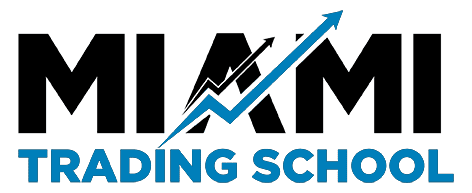Anti-Money Laundering (AML)
Welcome to Lesson 12 of our distinguished, complimentary Forex Trading Course in Miami, presented by Miami Trading School. Building upon a comprehensive foundation from prior sessions—encompassing the fundamentals of forex trading (Lesson 1), currency pair dynamics (Lesson 2), market architecture (Lesson 3), the advantages of trading in Miami (Lesson 4), essential terminology (Lesson 5), broker evaluation (Lesson 6), account structures (Lesson 7), IRS compliance (Lesson 8), scam prevention (Lesson 9), risk management principles (Lesson 10), and leverage mechanisms (Lesson 11)—this lesson delves into the sophisticated framework of Anti-Money Laundering (AML) protocols. We will elucidate its definition, underlying rationale, and pivotal role in fortifying traders against cyber threats and financial malfeasance, thereby empowering you to navigate Learn to Trade Miami with unwavering confidence and security. This knowledge is indispensable for our immersive Live In-Person Training Miami bootcamp.
Live In-Person Training
ENROLL NOW
The Essence of Anti-Money Laundering (AML)
Anti-Money Laundering (AML) encompasses a comprehensive suite of regulatory measures and protocols meticulously crafted to thwart the illicit concealment, transfer, or legitimization of funds derived from criminal activities within the financial system. These mechanisms are orchestrated by governmental authorities and international organizations, such as the Financial Action Task Force (FATF), to combat financial crimes including terrorism financing, drug trafficking, and corruption. In the realm of forex trading, AML protocols mandate rigorous due diligence by brokers, encompassing identity verification (Know Your Customer, or KYC), transaction monitoring, and the reporting of suspicious activities to relevant authorities, such as the Financial Crimes Enforcement Network (FinCEN) in the United States.
The genesis of AML frameworks can be traced to the evolving landscape of global finance, where the anonymity and speed of transactions facilitated by digital platforms posed significant vulnerabilities to exploitation by nefarious actors. Enacted through legislation like the Bank Secrecy Act (1970) and the USA PATRIOT Act (2001) in the US, AML serves as a bulwark against the integration of “dirty money” into legitimate economies, preserving the integrity of financial institutions and markets. For traders in Forex Trading Miami, AML is not merely a regulatory obligation but a foundational safeguard that enhances trust in the ecosystem.
The Profound Importance of AML in Forex Trading
AML protocols are indispensable in maintaining the sanctity and stability of the forex market, which operates as a decentralized global network (Lesson 3). By enforcing stringent verification processes, AML mitigates the risk of market manipulation, fraud, and illicit fund flows, thereby fostering a transparent and equitable trading environment. This regulatory rigor not only deters criminal elements but also bolsters investor confidence, encouraging greater participation in legitimate trading activities. In the context of Lesson 4, Miami’s position as a financial hub amplifies the relevance of AML, as the city’s international connectivity heightens exposure to cross-border financial crimes.
Moreover, AML frameworks play a pivotal role in combating scams (Lesson 9), ensuring that brokers adhere to ethical standards and report suspicious behaviors. For individual traders, AML compliance translates to enhanced security, as it mandates robust measures against identity theft and unauthorized transactions, aligning with the risk management principles outlined in Lesson 10.
How AML Safeguards Traders from Hacking and Theft
One of the most compelling aspects of AML protocols lies in their capacity to shield traders from cyber threats, particularly hacking incidents that could result in substantial financial losses. By enforcing the principle that withdrawals must be directed exclusively to the original source of funds—such as the bank account or payment method used for deposits—AML effectively neutralizes the threat of hackers siphoning funds to unauthorized destinations. This “return to source” policy ensures that even if a hacker gains access to your trading account, they cannot redirect withdrawals to their own accounts, as brokers rigorously verify the destination against the initial deposit source.
In essence, AML transforms a potential catastrophe into a manageable inconvenience. Hackers might attempt to execute trades on your behalf, potentially incurring losses or altering positions, but they are unable to extract the actual funds from your account. This safeguard is particularly pertinent for traders in Forex Trading Miami, where the prevalence of digital transactions heightens vulnerability to cyber attacks. By mandating multi-factor authentication, transaction monitoring, and KYC verification, AML protocols fortify account security, allowing traders to focus on strategy rather than fearing theft. Our Forex Mentorship Program underscores these protective measures to empower you with confidence.
Practical Implications of AML for Forex Traders
The practical application of AML in forex trading extends beyond mere compliance; it serves as a robust defense mechanism against a spectrum of risks. For instance, in the event of a security breach, the “return to source” rule ensures that any attempt to withdraw funds is routed back to your verified bank account, thereby thwarting the hacker’s objective. This protocol not only deters cybercriminals but also facilitates swift recovery, as brokers can freeze accounts upon detecting suspicious activity. Furthermore, AML compliance is integral to broker selection (Lesson 6), as regulated entities are compelled to implement these safeguards, aligning with the risk management imperatives discussed in Lesson 10.
Consider a scenario where a trader’s account is compromised during a phishing attack, a common tactic highlighted in Lesson 9. The hacker might manipulate positions to incur losses, but AML policies prevent any withdrawal to an unverified source, limiting the damage to trading activity alone. This protective layer allows the trader to regain control, reverse unauthorized trades if possible, and secure their funds, underscoring AML’s role in preserving financial integrity.
Example: A Miami trader deposits $10,000 via bank transfer into their forex account. A hacker gains access and attempts to withdraw to a foreign wallet. AML protocols block the transaction, routing funds only to the original bank account, thus preventing theft and allowing the trader to recover control without financial loss.
AML in the Context of Miami’s Trading Landscape
Miami’s status as a premier financial hub (Lesson 4) amplifies the relevance of AML protocols, given the city’s role in international trade and its exposure to cross-border financial flows. Traders in this vibrant environment benefit from AML’s stringent measures, which align with the regulatory frameworks governing US brokers (Lesson 6). By mandating “return to source” withdrawals, AML not only deters money laundering but also serves as a formidable barrier against hacking, a growing concern in digital trading platforms. This security enables Miami traders to focus on strategy development and market analysis, free from the specter of financial theft. Our Forex Training in Miami integrates AML awareness to empower you with comprehensive knowledge.
Trade with the #1 Broker: OXSecurities
Ready to start trading? Choose OXSecurities, the #1 broker for Forex Trading Miami. With competitive spreads, reliable execution, and a user-friendly platform, OXSecurities is trusted by traders worldwide. Their compliance with regulations ensures safety, making them the perfect partner for your trading journey. Click here to open an account and start trading with confidence!
Why Learn with Miami Trading School?
At Miami Trading School, we make forex trading accessible and empowering. Our free Forex Trading Course in Miami builds a robust foundation, while our Forex Mentorship Program offers personalized coaching. Miami’s vibrant trading community is the perfect environment to Learn to Trade Miami.
What’s Next in Your Forex Journey?
Congratulations on completing Lesson 12! In Lesson 13, we’ll delve into fundamental analysis, building on market structure (Lesson 3) and terminology (Lesson 5). Keep following our Forex Trading Course in Miami to build your skills. Ready to accelerate your learning? Join our Live In-Person Training Miami bootcamp for hands-on experience and expert mentorship. Enroll in the Best Miami Trading Course today!
Join Our Forex Bootcamp
